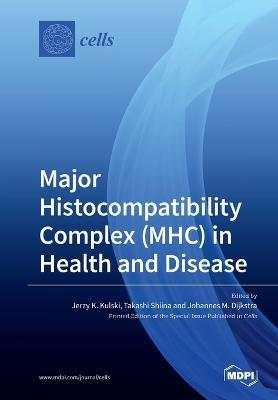Major Histocompatibility Complex (MHC) in Health and Disease

Major Histocompatibility Complex (MHC) in Health and Disease
The major histocompatibility complex (MHC) is a highly polymorphic and diverse multigene locus in all jawed vertebrate species that has an integral role in adaptive/innate immune systems, transplantation, and infectious and autoimmune diseases. The MHC supra-locus in mammalian vertebrates is usually partitioned into three distinct regions, known as classes I, II, and III, which, to varying extents, can be found conserved in nonmammalian jawed vertebrates, such as bony fish, amphibians, and bird lineages. The MHC gene region is characterized particularly by the expression of class I and class II glycoproteins that bind peptides derived from intracellular or extracellular antigens to circulating T-cells. While this expressed antigenic specificity remains the predominant interest with respect to MHC function and polymorphism in a population, a broader concept has emerged that examines the MHC as a multifunctional polymorphic controller that facilitates and regulates genome diversity with a much greater array of functions and effects than just MHC-restricted antigen recognition. This volume of 19 reprints presented by various experts and collected from the Special Issue of Cells on "MHC in Health and Disease" covers a broad range of topics on the genomic diversity of the MHC regulatory system in various vertebrate species, including MHC class I, II, and III genes; innate and adaptive immunity; neurology; transplantation; haplotypes; infectious and autoimmune diseases; fecundity; conservation; allelic lineages; and evolution. Taken together, these articles demonstrate the immense complexity and diversity of the MHC structure and function within and between different vertebrate species.
PRP: 591.89 Lei
Acesta este Prețul Recomandat de Producător. Prețul de vânzare al produsului este afișat mai jos.
532.70Lei
532.70Lei
591.89 LeiLivrare in 2-4 saptamani
Descrierea produsului
The major histocompatibility complex (MHC) is a highly polymorphic and diverse multigene locus in all jawed vertebrate species that has an integral role in adaptive/innate immune systems, transplantation, and infectious and autoimmune diseases. The MHC supra-locus in mammalian vertebrates is usually partitioned into three distinct regions, known as classes I, II, and III, which, to varying extents, can be found conserved in nonmammalian jawed vertebrates, such as bony fish, amphibians, and bird lineages. The MHC gene region is characterized particularly by the expression of class I and class II glycoproteins that bind peptides derived from intracellular or extracellular antigens to circulating T-cells. While this expressed antigenic specificity remains the predominant interest with respect to MHC function and polymorphism in a population, a broader concept has emerged that examines the MHC as a multifunctional polymorphic controller that facilitates and regulates genome diversity with a much greater array of functions and effects than just MHC-restricted antigen recognition. This volume of 19 reprints presented by various experts and collected from the Special Issue of Cells on "MHC in Health and Disease" covers a broad range of topics on the genomic diversity of the MHC regulatory system in various vertebrate species, including MHC class I, II, and III genes; innate and adaptive immunity; neurology; transplantation; haplotypes; infectious and autoimmune diseases; fecundity; conservation; allelic lineages; and evolution. Taken together, these articles demonstrate the immense complexity and diversity of the MHC structure and function within and between different vertebrate species.
Detaliile produsului










